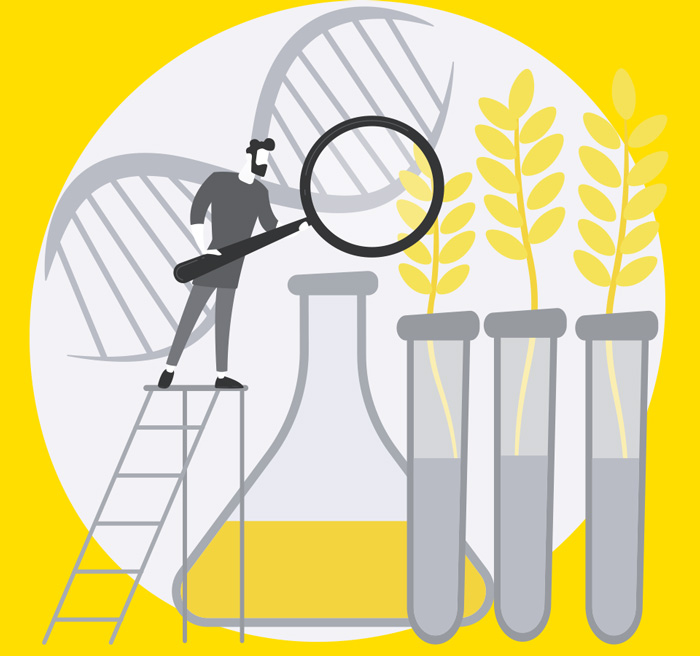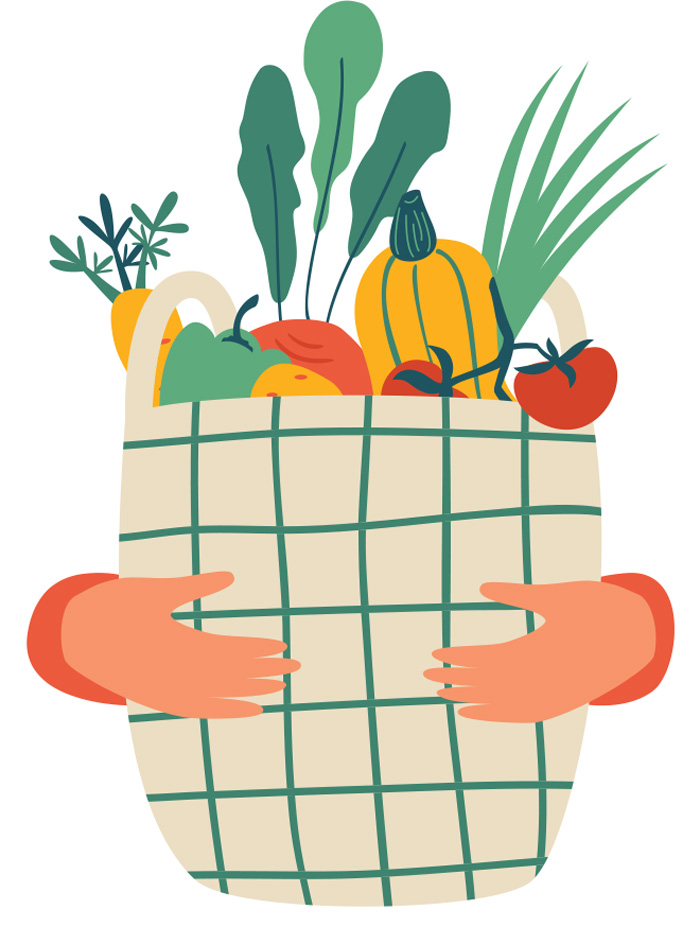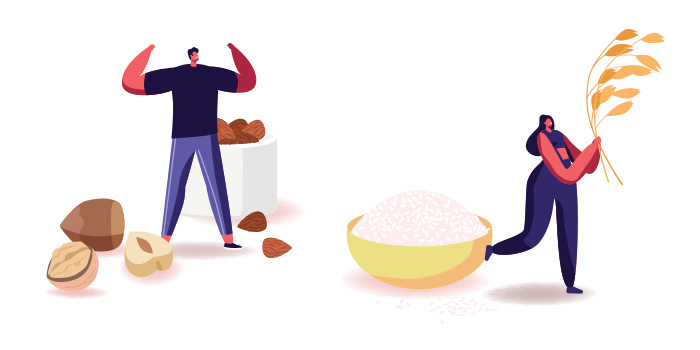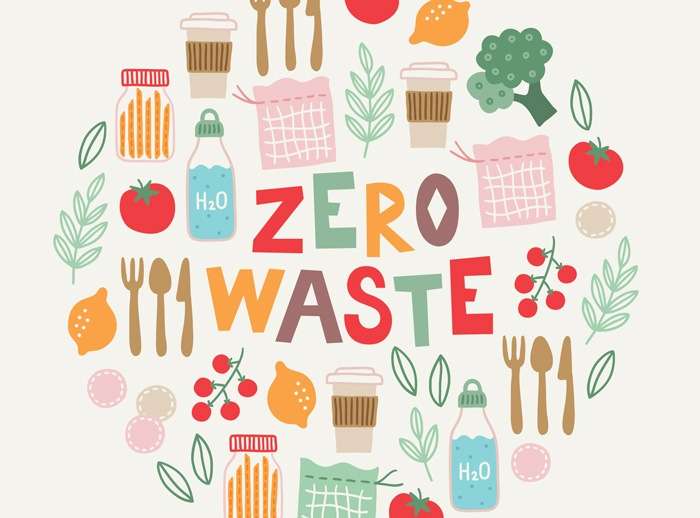The psychology of price increases, New U.S. Food Loss and Waste 2030 Champions
OMNIVORE
CONSUMERS
Price increases: How much is too much?
With convenience food prices on the rise, consumers are faced with decisions about which products to keep on their pantry shelves and which to ditch. Although 84% of consumers are concerned about the impact of inflation on their budget, when it comes to cereal, most are willing to absorb modest price increases, according to research from consumer insights platform Veylinx.
In a study of the two most popular U.S. cereal brands, Cheerios and Frosted Flakes, demand for Frosted Flakes remains virtually unchanged when prices rise by 20 cents (from $3.29 to $3.49), and demand for Cheerios drops by only 1.5%. However, a 50-cent price increase reduces demand for both brands by almost 13%.
Consumers who eat cereal more than twice a week are even more tolerant of price increases, with demand falling by only 15% when the average price goes from $3.29 to $3.99 (a 21% increase), in contrast with a 26% drop in demand for people who consume two or fewer bowls per week. Based on price alone, $3.99 appears to be an important psychological threshold, with demand falling sharply above that price point.
Gender, age, and income also play a part in inflation concerns. Men are nearly twice as willing to absorb price increases as women, and although older consumers (55-plus) express the most worry about inflation, they are just as likely to absorb price increases as younger consumers. Counterintuitively, lower income consumers (<$25,000 annually) are least worried about inflation (78%) while consumers with $100,000-plus in annual income report being most worried, with 88% somewhat or very concerned.
COMMUNITY
Penn State honors Ziegler
Penn State University’s Office of the Vice Provost for Faculty Affairs has named IFT Fellow Greg Ziegler, professor of food science in the College of Agricultural Sciences, as a distinguished professor. Distinguished professors are acknowledged leaders in their fields of research or creative activity; demonstrate significant leadership in raising the university’s standards in teaching, research or creative activity, and service; and exhibit excellent teaching skills.
A renowned expert in the science and engineering of chocolate manufacturing, Ziegler was co-author and co-editor of Beckett’s Industrial Chocolate Manufacture and Use, Fifth Edition, the premier scientific and technical manual used in the chocolate industry.
The major focus of Ziegler’s work has been to understand the physical and sensory properties of confectionery products. He has also contributed to the understanding of biopolymer blends for creating novel structures and textures in foods. His areas of research include functionalized, electrospun starch nanofibers, which are being developed and refined as a potential scaffolding material for cultured meat products.
Throughout his career, Ziegler has authored or co-authored more than 140 peer-reviewed research papers and attracted more than $7.5 million in research support from commercial, state, and federal funding agencies, including the U.S. Department of Agriculture’s National Institute of Food and Agriculture, the National Institutes of Health, and the National Endowment for the Humanities.
Ziegler has been the principal adviser of 34 graduate students and is a sought-after committee member. In 2020, he received the Howard Palmer Faculty Mentoring Award in recognition of his efforts to develop junior faculty into productive and collegial members of the university.
HEALTH
Stevia and gut health
The natural sugar substitute stevia has no negative effect on human gut health, according to scientists with the Dairy and Functional Foods Unit of the United States Department of Agriculture’s Agricultural Research Service.
The zero-calorie sweetener, derived from the leaves of Stevia rebaudiana, a plant species native to Brazil and Paraguay, was the subject of a study conducted by research molecular biologist Karley Mahalak, who found that the compounds in stevia extracts did not significantly alter microbial composition or diversity in the gastrointestinal tract. In fact, the erythritol in commercially available stevia products could even help increase levels of butyric acid—a crucial fatty acid created when good bacteria break down dietary fiber—in the human gut. This effect could potentially support good colon health, especially for individuals with conditions like irritable bowel syndrome and Crohn’s disease.
AGRICULTURE
GM crops: good for the environment
Although genetically modified (GM) crops have become a source of contention among consumers, some of whom believe they could negatively affect human health, a new study from the Center for Development Research at the University of Bonn shows that their adoption in the European Union (EU) could help reduce greenhouse gas emissions.
More than one-third of agricultural emissions, which account for about 25% of greenhouse gas emissions worldwide, are caused by land-use change, especially the conversion of forests and nature reserves to agricultural land used to grow food and feed. “Using better technologies to increase crop yields on the land already cultivated could reduce this land-use change and the associated emissions,” said study co-author Matin Qaim, in a press release.
Using global agricultural data and estimates of the effects of GM crop yields, Qaim and his team of researchers were able to model how increased technology adoption in the EU would affect production, land use, and greenhouse gas emissions. The estimates suggest that growing more genetically modified crops in the EU could prevent the release of 33 million tons of CO2 equivalents, equal to about 7.5% of the EU’s total annual greenhouse gas emissions from agriculture.
The research team concluded that higher yields of maize and soybeans, in particular, in the EU had the potential to help preserve the Amazon rainforest by reducing imports of the crops from Brazil, “where the expansion of agricultural land contributes to tropical deforestation.”
Although the study only examined existing GM crops, Qaim believes that new genomic breeding technologies that are being used to develop new crop applications “could lead to additional climate change mitigation and adaptation benefits in the future.”
DIET & NUTRITION
Eco-conscious eating shapes nutrition
Recently recognized as a mega-trend by the Kerry Health and Nutrition Institute, sustainable nutrition is becoming an essential element in food product innovation and consumer decision-making as well as a vital factor when it comes to the future of the planet.
Encompassing a full array of qualities and characteristics, sustainable nutrition is defined as food that is nutritionally adequate, safe, and healthy while being produced and delivered in a way that respects consumers, the environment, and society. From economic and environmental perspectives, this translates into food that is accessible, economically fair, and affordable, with a low environmental impact. From a social perspective, it means food that is culturally acceptable.
Achieving this mix of characteristics will require the use of more sustainable farming and sourcing practices, a focus on closed-loop supply chains, the discovery of health and nutrition value in waste streams, and the development of solutions to feed populations in need, according to Kerry.
Among the major takeaways of the research are the following:
- Addressing global over-nutrition and under-nutrition is essential to achieving sustainable nutrition.
- The food and beverage industry is likely to be held more accountable for producing sustainably nutritious products via legislative and consumer actions.
- Advances in technology and collection of Life Cycle Assessment data will better capture environmental impact and improve accuracy and transparency.
Making the change from a typical Western diet to one that includes more legumes, whole grains and nuts, and less red and processed meat could add more than a decade to the life expectancy of a young adult, according to a study in PLOS Medicine by Lars Fadnes of the University of Bergen, Norway, and colleagues.
COMMUNITY
McLellan announces retirement
Former IFT President Mark McLellan, vice president for research and innovation at the University of North Texas (UNT), has announced that he will retire in June, after more than four decades of commitment to and excellence in food science research and university research administration.
McLellan began his academic career as a faculty member at Cornell University, where he became department chair and director of Cornell’s Institute of Food Science. Later, at Texas A&M University, he served for six years as director of the Food Science and Engineering Institute and was responsible for constructing the Electron Beam Research Center and its designation as a national research center. Subsequently, he moved to the University of Florida’s Institute of Food and Agricultural Sciences (IFAS), where he became dean for research, responsible for all faculty research appointments in IFAS. After his service in Florida, he was appointed vice president for research and dean for graduate studies at Utah State University, where he helped to expand research and diversify programs. Before moving to UNT in 2019, he served for one year as vice president of research at Portland State University.
At UNT, McLellan established the successful Grant Manager Program and the Washington D.C. Faculty Fellows program and oversaw one of the most significant expansions of research success at UNT. As an ardent supporter of the Association of Public and Land-grant Universities and a member of its Council of Research, he was a regular contributor to the annual training team for new associate vice presidents of research from across the country.
McLellan also served in various leadership roles in support of the selection of laureates for the World Food Prize. In addition, he chaired the U.S. Food and Drug Administration’s Science Board and for many years was an NGO representative to the United Nations’ International Atomic Energy Agency, where he spoke on food safety and opportunities for food irradiation.
FOOD WASTE
New U.S. Food Loss and Waste 2030 Champions
The U.S. Department of Agriculture and the Environmental Protection Agency recently named seven companies—Albertsons Companies, BJ’s Wholesale Club, Danone North America, Smithfield Foods, Starbucks, Sysco, and Tyson Foods—as U.S. Food Loss and Waste 2030 Champions.
The companies have committed to reducing food loss and waste in their U.S. operations by 50% by 2030, a goal essential to achieving a resilient, climate-smart food system. In addition to donating to food banks, the champions have pledged to undertake a variety of other actions, including innovating inventory and supply management practices (Albertsons Companies, Starbucks, Tyson Foods); reducing food waste within their operations and supply chain (Danone North America); contributing food waste to animal feed, composting, and other efforts (Albertsons, Starbucks, Sysco, Tyson Foods); and innovating feed formulations to include byproducts (Smithfield Foods).
For more information, please visit the work of the U.S. Food Loss and Waste 2030 Champions.
COMMUNITY
Getting to know Wenqin Tang
Food Technology reached out to IFT volunteer Wenqin Tang, who serves on the board of the Western New York Section (WNYIFT), to learn more about her job, her volunteer experiences, and her perspective on the future of food science. Honored with a 2020–2021 Section Service Award, she currently serves as secretary of WNYIFT, where she coordinates with other board members to host virtual and in-person events and manages the section’s social media.
Q: Tell us a little about your job.
Tang: I currently work at The National Food Laboratory as a food scientist. Besides working on the benchtop to develop novel food products, I am also developing expertise in regulatory compliance of food ingredients. I have participated in multiple plant-based yogurt, cheese, and beverage development projects, and a few of them actually made it to the shelf, which is quite exciting and rewarding. Currently, I am co-leading a project to review and approve raw material ingredients from a Regulatory Affairs perspective for one of our clients.
Q: What aspects of your job do you enjoy most?
Tang: Because the National Food Lab is a consulting company, I am able to work on both product development and project lifecycle management projects. I enjoy the variation, especially formulating novel products or using new ingredients. When the formula works, it feels very rewarding to utilize food science knowledge to help clients achieve their goals.
Q: Are there specific volunteer experiences you’ve found particularly meaningful?
Tang: I found it meaningful to connect people or resources, from sharing a job posting from a local food company to hosting networking events, especially for students and young professionals. Due to the pandemic, I hope to connect our section members better online, so I have been posting more actively on WNYIFT’s LinkedIn page and gained around 40% increase of LinkedIn followers in 2021!
Q: Looking to the future, what are some of the challenges you foresee for the science of food community?
Tang: To build and maintain a safe, secure, and sustainable global food supply chain. During the COVID-19 pandemic, I have seen disruption of the supplies in many food items, and increased food prices, especially fresh produce. I foresee more challenges bought by climate change [that will] add to the uncertainty of the global food supply chain as well. However, I personally interpret them as opportunities to further strengthen the current global food supply chain with aid from the government, scholars, and the general public. As an individual, I feel a responsibility to play a role in this. For instance, I have been encouraging friends and families around me to reduce food waste by storing fresh produce in appropriate containers or in the freezer to extend shelf life.
This interview has been edited and condensed for clarity.
















